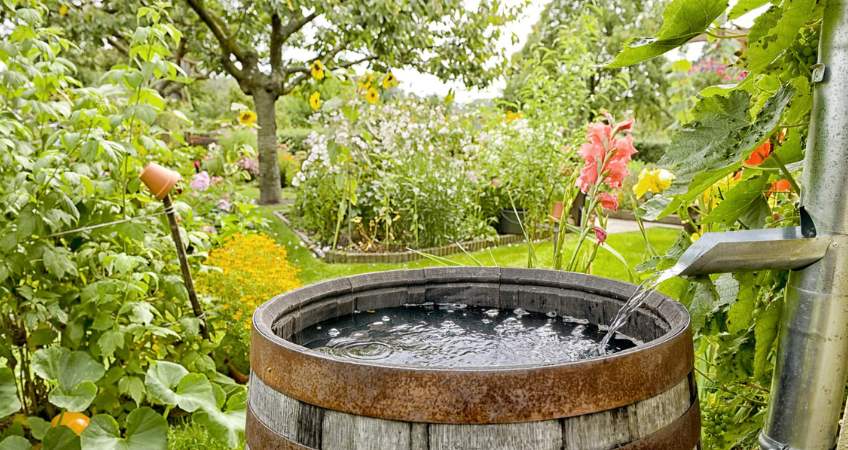Rainwater harvesting is a simple and effective way to conserve water and improve the health of your garden. Not only does it reduce the strain on municipal water supplies, but it also provides plants with a natural source of hydration. In this article, we will explore the benefits of collecting rainwater and how you can use your garden to do so.
One of the main advantages of using rainwater in your garden is that it is free of chlorine and other chemicals found in tap water. These substances can be harmful to plants and lead to nutrient deficiencies. Rainwater, on the other hand, is pure and contains essential minerals that are beneficial for plant growth.
Another benefit of collecting rainwater is that it can help reduce water bills. Municipal water is often treated and transported over long distances, which can be costly. By using rainwater, you can save money on your water bills and invest in other areas of your garden.
There are several ways you can use your garden to collect rainwater. One option is to install a rain barrel or cistern. These containers can be placed under downspouts or in other areas of your garden to capture rainwater from your roof. You can then use a hose or watering can to distribute the water to your plants.
Another way to collect rainwater is to create a rain garden. This is a landscaped area that is specifically designed to capture and filter rainwater. Rain gardens are typically shallow depressions that are planted with native plants and grasses. They help to reduce erosion and improve water quality by allowing rainwater to slowly filter into the ground rather than running off into storm drains.
In addition to these options, you can also use mulch and other organic materials to retain moisture in your garden. Mulch helps to regulate soil temperature and retain moisture, which can be especially beneficial during dry periods.
In conclusion, collecting rainwater is a simple and effective way to conserve water and improve the health of your garden. By using a rain barrel or cistern, creating a rain garden, or incorporating mulch and other organic materials, you can help reduce your water bills and create a more sustainable and thriving garden.

